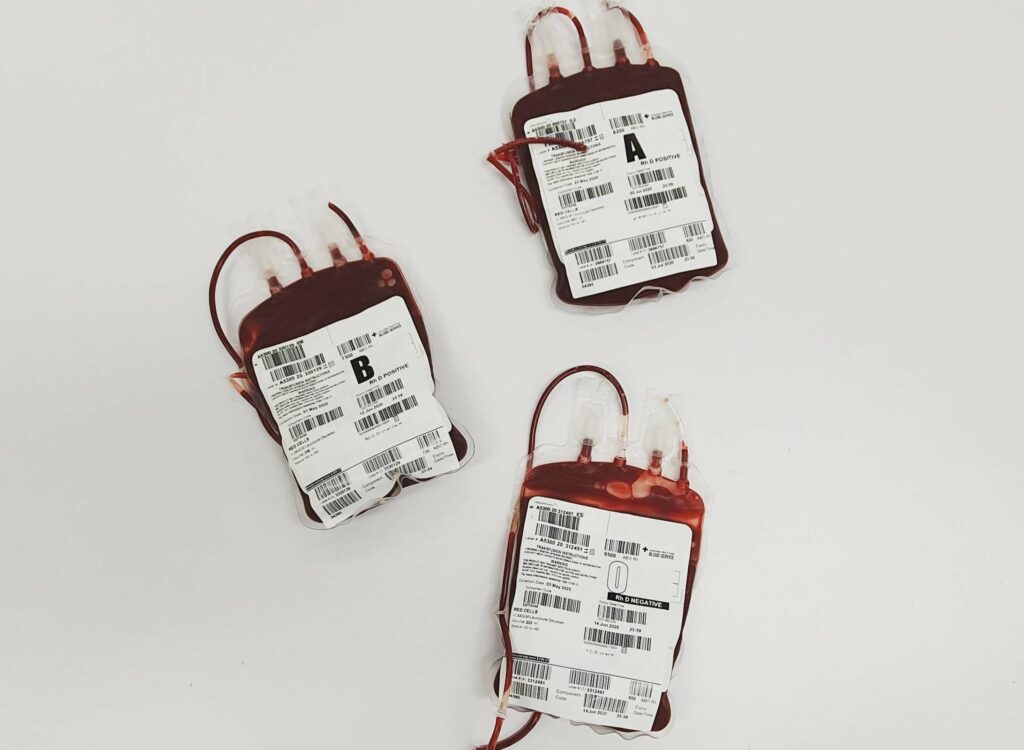Living with insecurity can feel like walking on a high wire, teetering between self-doubt and anxiety. Insecurity is something that we all experience from time to time, but for some people, it’s an everyday battle. I know this because I’ve been there myself – grappling with feelings of inadequacy and constantly comparing myself to others.
Sometimes it’s hard to pinpoint why we feel insecure or inadequate. Is it our upbringing? Our life experiences? A combination of both? Or perhaps it’s a product of our self-perception – the harsh inner critic that never seems to quiet down. Whatever the cause, understanding what underpins these feelings is key to overcoming them.
But let me tell you something: It’s possible to overcome those nagging insecurities and build confidence in their place. In my journey towards embracing self-love and ditching doubt, I’ve discovered certain truths about insecurity, its origins, its impact on our lives and how we can effectively manage it. Stick around as I share these insights with you; they might just change your perspective on the ‘I’ in insecurity!
Understanding the Insecure Person: A Psychological Perspective
Let’s delve into the mind of someone who struggles with insecurity. It’s a journey that may seem perplexing, but it provides us with valuable insights and empathy for those dealing with this issue.
Insecurity is often rooted in low self-esteem or lack of confidence. These individuals are frequently plagued by constant self-doubt and worry about their worthiness. They might question if they’re good enough, smart enough, or attractive enough. This persistent self-questioning can lead to a cycle of negative thinking that feeds their insecurity further.
To illustrate this point, let me share an example. Imagine a person named Alex who fears public speaking due to his insecurity about his communication skills. Every time he’s asked to speak publicly, he panics and starts overthinking every word he’ll say. He worries people will laugh at him or judge him harshly for his performance.
Now let’s look at some numbers:
| Percentage | Insecurity Type |
|---|---|
| 75% | Social |
| 60% | Performance |
| 55% | Body Image |
This table shows common types of insecurities faced by people today – social insecurity (like Alex), performance-related insecurities (fear of failure), and body image concerns being some prevalent examples.
So how does one tackle these insecurities? Psychologists suggest various coping mechanisms such as cognitive-behavioral therapy, journaling feelings, challenging negative thoughts, practicing mindfulness meditation and seeking professional help if needed.
- Cognitive-behavioral therapy helps change harmful thought patterns.
- Journaling your feelings can provide a healthy outlet for expression.
- Challenging negative thoughts encourages you to dispute irrational beliefs with more positive ones.
- Mindfulness meditation encourages acceptance of oneself without judgment.
Remember, understanding is the first step towards empathizing with insecure individuals and aiding them in their journey to overcome these feelings.
The Causes of Insecurity: An Exploration
It’s pretty normal to feel a twinge of insecurity every now and then. However, when those feelings become persistent, it can take a toll on our mental health and everyday lives. So what causes this senseless self-doubt? Let’s delve into some key factors that contribute to feelings of insecurity.
Childhood experiences often play a significant role in shaping an individual’s self-perception. If you’ve been subjected to harsh criticism, neglect, or abuse during your formative years, you’re more likely to harbor feelings of insecurity as an adult. It’s not just about the severe cases though – even subtle forms of negative reinforcement can sow seeds of doubt about one’s worthiness.
Past failures or rejections can also lead us down the path of insecurity. Be it flunking an important test or facing rejection from peers, these instances can solidify negative beliefs about oneself if they’re not properly addressed. Here’s something interesting – according to a study by Cornell University:
| Failure/Rejection Type | Percent Feeling Insecure |
|---|---|
| Academic failure | 70% |
| Social rejection | 85% |
Even societal expectations and pressures aren’t innocent bystanders when it comes to fueling insecurities. We live in a world where we’re constantly bombarded with images of ‘perfection’. From flawless skin and toned bodies on Instagram feeds to super successful people being glorified – it all creates unrealistic standards that most folks find hard to live up to.
Finally, let’s not forget personal temperament and personality traits. Some people are inherently more prone to feeling insecure due their temperament or certain personality disorders like avoidant personality disorder or dependent personality disorder.
So there you have it – childhood experiences, past failures/rejections, societal expectations, and personal temperaments make up some key contributors towards feelings of insecurity.
Signs and Symptoms of an Insecure Personality
I’ve often noticed that insecurity can be a tricky thing to spot, not just in others but also within ourselves. It’s something that can swing by unnoticed, subtly influencing our behaviors and interactions. So, if you’re wondering about the signs or symptoms of an insecure personality, let me break it down for you.
One key sign is constant self-doubt. Folks with insecure personalities tend to question their worth or abilities persistently. They might worry they’re not good enough or smart enough, despite evidence to the contrary.
- Self-Doubt: You’ll often find them second-guessing their decisions or seeking validation from others.
Another tell-tale sign is perfectionism. Now don’t get me wrong here; striving for excellence isn’t necessarily a bad thing. However, when it becomes an obsession due to fear of failure or criticism, it’s likely stemming from insecurity.
- Perfectionism: This could manifest as spending excessive time on tasks to ensure they’re perfect or avoiding new experiences due to fear of not being perfect at them.
Insecurity can also make people hyper-sensitive to criticism — even constructive feedback feels like a personal attack. For someone secure in themselves, critiques are opportunities for growth — but if you’re dealing with insecurity, these comments can feel deeply hurtful.
- Hyper-Sensitivity: If someone reacts strongly to minor criticisms or takes things personally that weren’t meant as such, then this could be a symptom of underlying insecurity.
Lastly – and perhaps one of the most obvious signs – is jealousy and comparison with others. An insecure person constantly measures their life against other people’s achievements and feels envious when they perceive others as having more than they do.
- Jealousy & Comparison: The social media world we live in makes this particularly difficult for those battling insecurities because everyone else’s lives appear so picture-perfect.
Recognizing these signs, it’s important to remember that everyone experiences some level of insecurity at times. It’s when these feelings start significantly impacting your life or relationships that you may want to seek help. After all, we’re all just doing our best in this wild world, and there’s no shame in needing a little extra support now and then.
Impact of Insecurity on Personal Relationships
It’s no secret that insecurity can cast a huge shadow over personal relationships. More often than not, an individual’s insecurities result in behaviors that undermine the very foundation of their relationships with family, friends, and romantic partners.
Insecurity often leads us to question our worth and value within a relationship. We may find ourselves constantly seeking reassurance, doubting our partner’s feelings for us or even fearing abandonment. These emotions aren’t just exhausting – they also put unnecessary strain on the relationship and breed mistrust.
The effects of insecurity don’t stop at romantic entanglements; friendships too can bear the brunt. When we’re insecure about ourselves, it’s easy to interpret a friend’s actions negatively or feel threatened by their successes. This competitive mindset is detrimental to any friendship as it fosters resentment rather than mutual support.
Here are some concrete ways insecurity can affect relationships:
- Constant need for validation: Insecure individuals often seek continuous validation from their partners or friends which can lead to emotional exhaustion.
- Trust issues: Due to self-doubt, insecure people may have trouble trusting their partners leading to frequent arguments.
- Communication breakdown: Insecurity can hamper open communication because individuals might fear rejection or judgment.
- Avoidance of intimacy: Fear of vulnerability could make insecure people avoid emotional intimacy altogether.
Even familial ties aren’t immune from the impacts of insecurity. When parents or siblings harbor feelings of inadequacy, they tend to project these insecurities onto each other leading to dysfunctional dynamics within the family unit.
However daunting this may sound, it’s crucial not to lose sight of the fact that everyone deals with insecurities at some point in their lives. What matters most is acknowledging these insecurities and actively working towards overcoming them – after all, everyone deserves healthy and fulfilling relationships!
Insecurity at Work: How It Affects Performance
We’ve all felt it at some point or another. That nagging doubt, the little voice in our head questioning our abilities and worth. Yup, I’m talking about insecurity. And it’s not just a personal issue – it can significantly impact your performance at work.
Insecurity often leads to stress and anxiety, which are hardly conducive to productivity. When we’re too busy doubting ourselves, we aren’t focused on the task at hand. Instead of pushing forward and making progress, we hesitate, second-guessing every move. This can lead to procrastination and decreased output.
But that’s not all! Insecurity also tends to hinder collaboration. Think about it – if you’re constantly worried about how others perceive you, will you be eager to share ideas or take risks? Probably not. And without open communication and innovative thinking, team performance suffers.
Here are a few stats that illustrate the impact of insecurity on workplace performance:
| Statistic | Description |
|---|---|
| 85% | Percentage of workers who feel insecure at their jobs |
| 50% | Employees who say insecurity causes them stress |
| 30% | Workers who admit they procrastinate due to self-doubt |
These numbers paint a sobering picture of how pervasive insecurity is in our workplaces and its detrimental effect on productivity.
So what can be done? Well, fostering an environment that supports employees’ mental health is crucial. Encouraging open dialogue about insecurities may help alleviate some of these issues by creating a more understanding and accepting atmosphere.
- Providing regular feedback
- Promoting teamwork
- Offering professional development opportunities
These are just a few ways employers can help employees overcome their insecurities and boost overall performance.
Insecurity might seem like an intensely personal issue but remember this – its effects ripple out into the wider workplace ecosystem affecting everyone involved. Recognizing and addressing it is the key to creating a healthier, more productive workplace for all.
Overcoming Personal Insecurities: Effective Strategies
Facing insecurities head-on can be an uphill battle, but it’s not impossible. It starts with recognizing these insecurities for what they are – just thoughts, and not necessarily reality. They’re often born out of past experiences or societal pressures, and understanding that can put you on the path to overcoming them.
Building self-confidence is a powerful weapon against personal insecurities. This doesn’t mean becoming overly cocky or pretending you’re perfect – it’s about acknowledging your worth and capabilities. Try listing down your strengths and achievements, no matter how small they seem. You’ll soon realize there’s more to celebrate about yourself than you thought!
Creating a positive environment around yourself should be another priority in battling insecurities. Surrounding yourself with people who uplift rather than pull you down can make a world of difference. Social media feeds filled with unrealistic body images, career successes, and perfect relationships can also fuel feelings of inadequacy. So don’t hesitate to unfollow accounts that make you feel less worthy.
Practicing self-care is equally important while dealing with insecurities. Exercise regularly, eat well-balanced meals, sleep adequately – taking care of your physical health will have a significant impact on your mental wellbeing too! Plus remember to take time out for activities you enjoy – hobbies that bring joy can distract from negative thoughts and boost confidence over time.
Lastly but most importantly – seek professional help if needed! Therapists are trained professionals who can provide valuable strategies for coping with insecurity issues.
Remember that everyone has their own set of insecurities; no one’s life is as picture-perfect as it might appear from the outside looking in. Be patient with yourself during this journey towards overcoming personal insecurities – change takes time but it’s always worth the effort!
Professional Help for Overcoming Insecurity: Therapies and Their Benefits
In the struggle against insecurity, professional help can be a game changer. Therapists and psychologists provide a safe space where you can unpack your insecurities, understand their root causes, and find effective ways to overcome them.
Among the various therapies available, Cognitive Behavioral Therapy (CBT) is widely recognized as one of the most efficient. I’ve seen firsthand how it helps individuals change negative thought patterns that fuel insecurity. CBT encourages you to challenge these thoughts and replace them with more positive and realistic ones. It’s like rewiring your brain for confidence!
I can’t stress enough how transformative Dialectical Behavior Therapy (DBT) can be too. Originally developed for treating borderline personality disorder, DBT is now used effectively in overcoming deep-seated insecurities. It teaches acceptance of self and others while also promoting positive changes.
Let’s not overlook Exposure Therapy either – it gradually exposes you to situations that trigger your insecurities until they lose their power over you. This therapy has proven benefits in reducing anxiety associated with these triggers.
There are many more options out there such as group therapy or solution-focused brief therapy which might suit different individuals better depending on their needs.
- Cognitive Behavioral Therapy – challenges negative thought patterns
- Dialectical Behavior Therapy – promotes acceptance of self and others
- Exposure Therapy – reduces anxiety by exposing to triggering situations
Remember, seeking professional help doesn’t mean you’re weak; rather it shows courage because admitting we need help is never easy! So if you’re grappling with persistent insecurities that are keeping you from living life fully, don’t hesitate to seek assistance from mental health professionals.
Conclusion: The Journey to Self-Security
It’s been a fascinating journey, hasn’t it? We’ve dived deep into the psyche of an insecure person, unraveled their fears and anxieties, and shed light on how these insecurities can impact their life. But now, let’s turn our focus towards the road to self-security.
We’ve seen that insecurity can stem from numerous sources – past trauma, societal pressures or even personal failures. It’s vital to understand that overcoming this isn’t about erasing these experiences or feelings but learning to navigate them skillfully.
I’ll tell you what I believe – everyone has the power within themselves to conquer their insecurities. Here are some strategies that I have found particularly effective:
- Self-awareness: Recognize your insecurities and accept them as part of your human experience.
- Positive self-talk: Speak kindly to yourself. Replace negative thoughts with positive affirmations.
- Healthy relationships: Surround yourself with people who uplift you, not those who bring you down.
- Professional help: If it all feels too overwhelming, don’t hesitate to seek professional help like therapy or counseling.
Remember, change doesn’t happen overnight. It’s a step-by-step process filled with ups and downs. But every small victory is progress in the right direction.
Insecurity may be a common struggle for many of us, but it doesn’t define who we are nor does it determine our worth. By practicing self-love and acceptance daily, one can gradually build up their sense of self-security.
So here’s my final takeaway for you – embrace yourself fully: strengths, weaknesses…and yes…even your insecurities! For they make up the unique individual that is you!
Thanks for joining me on this exploration of insecurity and the path towards self-security. Remember – there’s no shame in being insecure; it’s just another facet of our wonderfully complex human existence!



